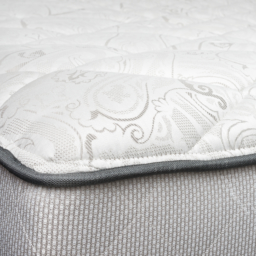What to Look for When Buying a Home
If you’re a first time home buyer, or starting the process of moving, it’s a good idea to get a list down of what you’re looking for in a home. While checking out some new homes, there are a ton of red flags that could show up, whether it’s the homes foundation, quality of floors, or even an outdated kitchen appliance. Here’s a few tips along with a quick checklist you can use when looking for your new home.
Before You Go Hunting
Find a High Rated Real Estate Agent
Check some credible real estate forms like Trulia, and Zillow to find an agent in your area. You could also hire an Exclusive Buyer’s Agent, which is a real estate agent who specializes in working with home buyers rather than sellers.
Look at the Local School Districts
If you’re planning on starting a family in the near future, or already have a family of your own, you should find out the quality of the local schools before you make a decision on a home. There are plenty of sites that track school performance, here’s some you can use to get a more accurate picture of the quality of local schools:
A Quick Home Inspection Checklist
While on the initial tour of a potential home, mark down specific areas of the house you want your inspector to take a closer look at. Use the checklist below to help guide you while you look through the house.
Exterior:
Roof/Attic:
- Are there shingles missing?
- Is there flashing and trim installed?
- Are there any signs of leaks?
- When will the roof need to be replaced?
Foundation:
- Are there visible cracks on the outside walls?
- Are there any trees near the foundation?
Yard:
- Does the drainage slope away from the house?
- Are there any soggy areas you can identify?
- Are the walkways and driveway in good condition?
Interior:
Appliances: (If included)
- Do the appliances appear to be well-maintained?
- What are the ages of the:
Refrigerator? ___
Dishwasher? ___
Oven? ___
- Are there any leaks under the sinks (bathrooms and kitchen)?
Structural Elements:
- Has there previously been a fire in the home?
- Do the walls show vertical or horizontal cracks?
- Are there any stains on the floors, walls or ceilings?
Ventilation and Sub-Systems:
- Does the house smell? Can you identify the source?
- Do the heating and AC systems appear to be working?
- Does the water heater produce enough hot water?
- Is there a working exhaust fan in the kitchen?
Miscellaneous:
Electrical:
- Do all the switches work?
- Is each outlet properly grounded?
- Do the ceiling fans work?
- Has the electrical panel been recalled?
Plumbing:
- Are there any unusual noises?
- Do the faucets and other fixtures have enough pressure?
Garage:
Check all of the following elements for signs of damage or wear:
Slab
Walls
Ceiling
Vents
Garage Door
Lights
Openers
Windows
Roof
After You’ve Taken a Look
Hire a Home Inspector
Once you’ve looked through the house, your next step is to hire an inspector to go through a more thorough inspection. Your real estate agent could either recommend one to you, or you could look for one yourself using the American Society of Home Inspectors (ASHI) directory. You should look for someone with at least three to five years experience, can provide proof of licensing, and insurance.
Actually Read Through the Inspection Report
A home inspection done by a professional shouldn’t take more than three or four hours, afterwards you’ll have a full report to read through. If there are any potential problems found in the home, they’ll be noted on the report (usually with pictures). Keep in mind that most homes will have some issues, the key is to finding the worst issues before you sign. Use this information from the report to asses whether or not it’s worth buying and fixing, or moving on, in some cases you can use this information to renegotiate the price.
Some of the more common problems found on a home inspection list include:
- Faulty Wiring: Wires without wire nuts, open junction boxes.
- Faulty Plumbing: Low water pressure, water stains on ceilings.
- Poor Drainage: Soggy areas in the yard, leaks in basement.
- Bad Gutters: Clogged gutters, basement dampness.
- Foundation Flaws: Small cracks, sticking doors and windows.
- Poor Maintenance: Chipped paint, worn shingles, cracked driveway.
All of these issues are an easy fix with the right contractor, and shouldn’t be considered deal breakers when making a decision on a home. However, if any of the following issues are noted on the report, you may want to reconsider before signing anything.
- Roof Needs Replacing: The average cost of a roof replacement is $7,000.
- The House is in a Flood Zone: Use FEMA’s flood maps to determine if the home is at risk.
- Major Foundation Issues: Hire a structural engineer to determine if those cracks are actually serious.
- Aluminum Wiring: This type of wiring almost always needs to be replaced, a process that can cost thousands of dollars.
Remember these are some of the most expensive repairs you could find when looking for a new home, if any of these issues show up during the inspection it’s a good idea to consult with your real estate agent. They can check to see if the seller could be convinced into paying for the repairs, or even take money off the asking price. For issues found outside of the home, like flood zones, you should prepare yourself to tackle on an additional insurance cost.
If you really love a home and can see past it’s faults, don’t let any potential issues deter you from making an offer. If you have a good idea of the time and money you’ll need to fix any issues (if any) with your check list when looking for your new home then you will be fine. Take into consideration the findings of your inspector, and go through your own list so you can make a fully informed decision and hopefully move into the home of your dreams!
Remember when moving in and out you’re going to be throwing away a ton of stuff and maybe even doing some renovating of your own! Call us at Dumpster Rental Inc for an affordable roll off dumpster to help you tackle the mess of moving and renovating!















